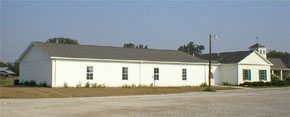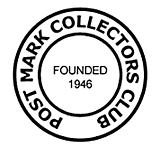
National Postmark Museum > A Visual Tour

Primary Collection
The museum's Primary Collection consists of full covers and postal cards.The goal of this collection is to preserve an example of every unique cancellation imprint (or example from any other dating device unique to a place) and die-hub machine cancel. Such can include multiple four-bar cancellations and machine cancels from a given post office. The Primary Collection is separated by state, then sorted alphabetically by post office, and then by postmark type.
Every item in the primary collection is protected by an archival sleeve. The collection is continuously updated as new material arrives at the museum -- primarily through donations.
California, New York, and Ohio represent some of the permanent collection's largest holdings.
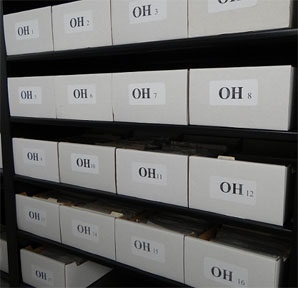
Ohio is well represented in the PMCC Museum's full cover holdings.

[ ↑ ] 'A' part of the full cover collection for New York State
Reference Collection

A two-by-four cancel from Drewry, AL in the Reference Collection
A large cabinet houses the museum's sizable Reference Collection of pieces cut to 2 inches by 4 inches, which is continuously strengthened along with the full cover collection. A sample postmark from this collection is shown at right.
Willett-Thompson Collection
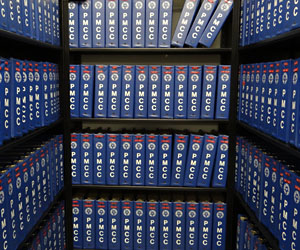
Part of the Willett-Thompson Collection at the PMCC Museum
Not only are many postmarks in this collection rare, but several cancels are the only postmark examples from particular post offices known to exist today.
The Willitt-Thompson Collection has been scanned, and is available to any interested party for order on CD here.
Photographs

Texas post office photos in archival sleeves
The states represented with the most post office photographs in the physical collection are California and New York, with more than 2,500 images apiece.
The PMCC's online Post Office Photo collection is largely independent from (and much smaller than) the museum's physical collection.
The PMCC Museum also houses sizable collections of:
Pictorial Cancellations.
First Day of Issue Cancels. (Below: sorting in progress.)

7-1-71 Cancels, inaugurating the first day of the U.S. Postal Service.
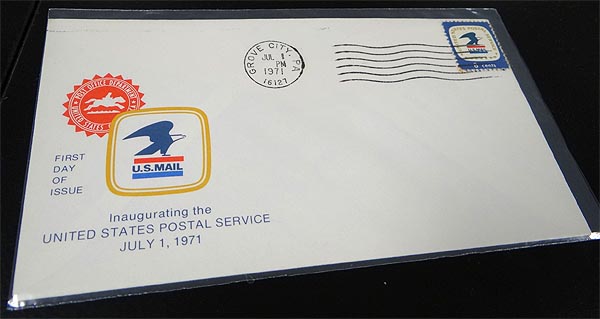
The museum possesses an unparalleled collection of slogan cancels. Further collections include RPO (Railroad Post Office) and HPO (Highway Post Office) cancellations, as well as military postmarks. Finally, modern ink-jet ("spray-on") cancels also find a place in the museum. In the far corner there's an extensive postal reference library.
All work within the museum is conducted by enthusiastic volunteers, primarily during PMCC Museum Work Weeks.
